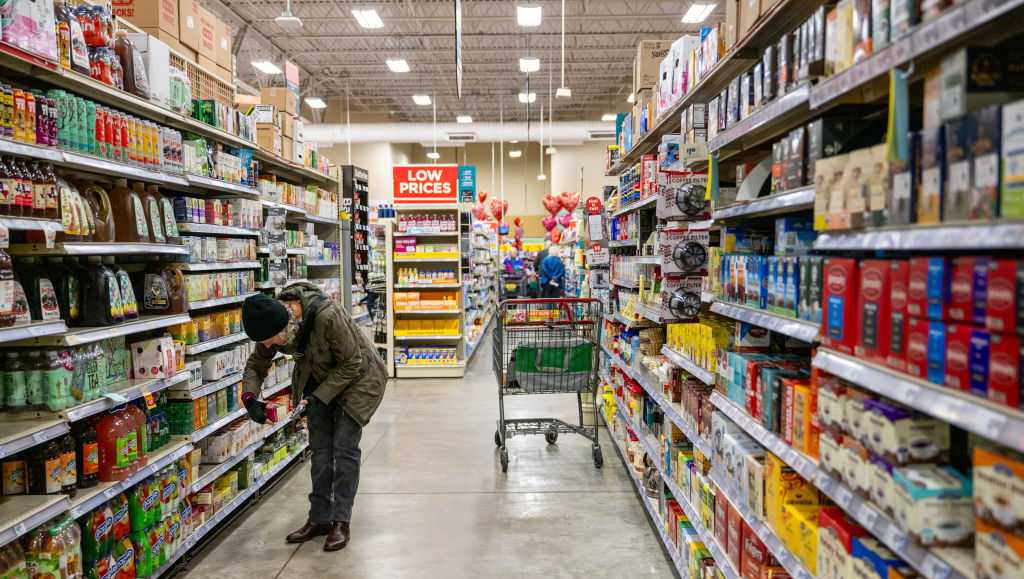January’s Consumer Price Index rose over 3% for the first time since June 2024 and surpassing economists’ expectations.”This is a setback for consumers. It’s a setback for central bankers. It’s a setback for the economy,” says Mark Hamrick of Bankrate.com.Inflation also worsened month over month, with prices jumping 0.5% in January from December, the largest increase since August 2023. Core prices, excluding volatile food and energy costs, increased by 0.4% from December, marking the largest rise in nearly two years. Egg prices rose more than 15% from December, the largest increase since June 2015. A bird flu outbreak is fueling that price increase.Economists express concern that this trend may continue with potential impacts from the Trump administration’s economic policy.”The biggest problem right now is that we don’t know what the impacts of Trump administration moves are going to be with respect to tariffs and deportations,” Hamrick said.Rising costs have contributed to President Donald Trump’s return to the White House as he vowed to “bring down prices” beginning on “day one.” Wednesday, President Trump blamed his predecessor, posting on social media, “BIDEN INFLATION UP!”Democrats are casting the blame on the current president.”Americans woke up to an era of Trumpflation, and unfortunately, this is only the beginning,” says Sen. Chuck Schumer, the Democratic Minority Leader.The White House said Wednesday it’s moving forward with its economic strategy, including reciprocal tariffs to be announced within the next 24 hours.”Far too many nations have been ripping off the United States of America for far too long and that’s why the president believes this will be a great policy that benefits American workers and improve our national security,” says White House Press Secretary Karoline Leavitt.Small businesses are preparing for the impact of these tariffs.”As small businesses, we’re getting squeezed from every direction,” says Jenn Coyle, founder of Can Van.Some small business owners feel they have no choice but to raise prices in anticipation of tariffs, which could further fuel inflation.”We have to, to keep the doors open, to keep the customers happy, and that’s our livelihoods,” says Rodg Little, owner of Oak Park Brewing.Federal Reserve Chairman Jerome Powell indicates that the agency is not in a rush to lower interest rates.Trump has pressured the Fed to lower interest rates, stating on social media, “INTEREST RATES SHOULD BE LOWERED, SOMETHING WHICH WOULD GO HAND IN HAND WITH UPCOMING TARIFFS!!!”Powell did not directly respond to the president’s request when asked by the Senate Finance Committee, stating that the central bank will make the best decisions based on the economy.
January’s Consumer Price Index rose over 3% for the first time since June 2024 and surpassing economists’ expectations.
“This is a setback for consumers. It’s a setback for central bankers. It’s a setback for the economy,” says Mark Hamrick of Bankrate.com.
Inflation also worsened month over month, with prices jumping 0.5% in January from December, the largest increase since August 2023. Core prices, excluding volatile food and energy costs, increased by 0.4% from December, marking the largest rise in nearly two years. Egg prices rose more than 15% from December, the largest increase since June 2015. A bird flu outbreak is fueling that price increase.
Economists express concern that this trend may continue with potential impacts from the Trump administration’s economic policy.
“The biggest problem right now is that we don’t know what the impacts of Trump administration moves are going to be with respect to tariffs and deportations,” Hamrick said.
Rising costs have contributed to President Donald Trump’s return to the White House as he vowed to “bring down prices” beginning on “day one.” Wednesday, President Trump blamed his predecessor, posting on social media, “BIDEN INFLATION UP!”
Democrats are casting the blame on the current president.
“Americans woke up to an era of Trumpflation, and unfortunately, this is only the beginning,” says Sen. Chuck Schumer, the Democratic Minority Leader.
The White House said Wednesday it’s moving forward with its economic strategy, including reciprocal tariffs to be announced within the next 24 hours.
“Far too many nations have been ripping off the United States of America for far too long and that’s why the president believes this will be a great policy that benefits American workers and improve our national security,” says White House Press Secretary Karoline Leavitt.
Small businesses are preparing for the impact of these tariffs.
“As small businesses, we’re getting squeezed from every direction,” says Jenn Coyle, founder of Can Van.
Some small business owners feel they have no choice but to raise prices in anticipation of tariffs, which could further fuel inflation.
“We have to, to keep the doors open, to keep the customers happy, and that’s our livelihoods,” says Rodg Little, owner of Oak Park Brewing.
Federal Reserve Chairman Jerome Powell indicates that the agency is not in a rush to lower interest rates.
Trump has pressured the Fed to lower interest rates, stating on social media, “INTEREST RATES SHOULD BE LOWERED, SOMETHING WHICH WOULD GO HAND IN HAND WITH UPCOMING TARIFFS!!!”
Powell did not directly respond to the president’s request when asked by the Senate Finance Committee, stating that the central bank will make the best decisions based on the economy.


